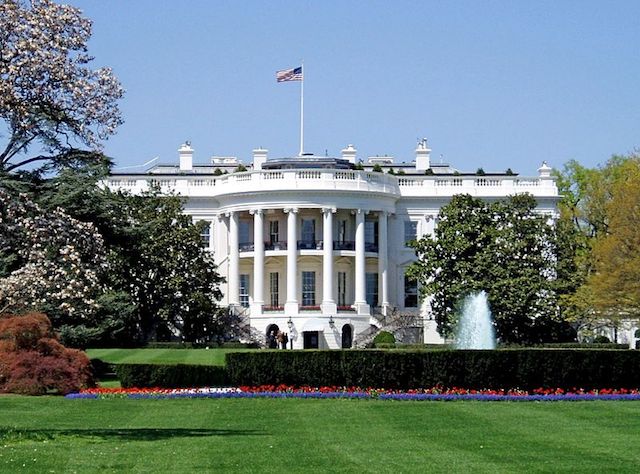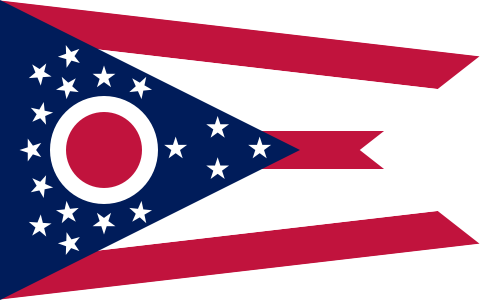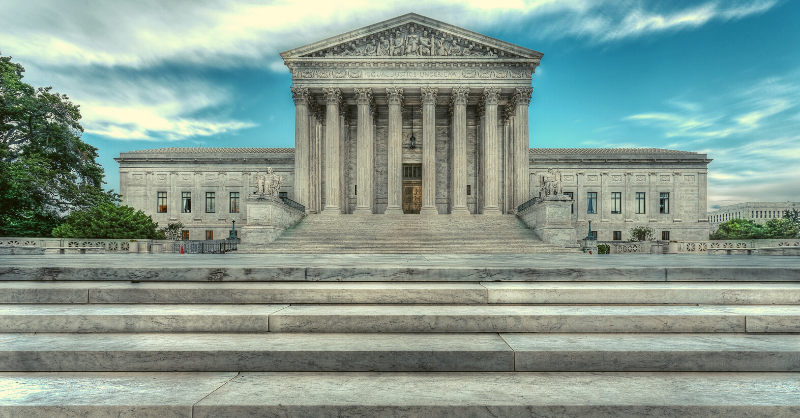Tag: Supreme Court
-
First year of Trump's second term by the numbers

One year ago today, Donald Trump (R) assumed office as the 47th president of the United States, making him one of only two presidents in U.S. history to serve two non-consecutive terms. Here’s a closer look at the first year of his second administration, by the numbers. Executive actions: During the first year of his…
-
Supreme Court hears arguments on limits to presidential removal power in FTC case

On Dec. 8, 2025 the U.S. Supreme Court heard oral argument in Trump v. Slaughter. The case examines whether Congress may limit the president’s authority to remove Federal Trade Commission (FTC) commissioners and whether courts may order reinstatement when a removal violates a statutory protection. During arguments, the justices focused primarily on how removal limits…
-
U.S. Supreme Court to decide whether candidates can sue over election law

On Oct. 8, the U.S. Supreme Court heard oral arguments in Bost v. Illinois State Board of Elections, a case over whether a candidate, U.S. Rep. Michael Bost (R), has the legal standing to challenge an Illinois law allowing mail-in ballots postmarked by Election Day to be counted up to 14 days after Election Day. …
-
U.S. Supreme Court has granted 83% of the Trump administration’s requests on the emergency docket

As of Oct. 1, 2025, the U.S. Supreme Court had fully granted 19 of the Donald Trump (R) administration’s emergency applications for intervention in lower court cases, 83% of the decided emergency applications that the administration filed. The court granted in part and denied in part two applications, denied one application, and denied one other…
-
Supreme Court limits nationwide injunctions in Trump v. CASA, Inc.

The U.S. Supreme Court issued a 6–3 decision in Trump v. CASA, Inc. on June 27, holding that federal district courts exceeded their authority by issuing universal injunctions—orders that block a federal policy nationwide, not just for the parties in the case. The Court did not decide the constitutionality of the underlying executive order concerning…
-
Chevron deference overturned one year ago today

The U.S. Supreme Court’s June 28, 2024, decision in Loper Bright Enterprises v. Raimondo (consolidated with Relentless, Inc. v. Department of Commerce) eliminated Chevron deference. In a 6–3 ruling, the Court held that judges must independently interpret ambiguous federal statutes rather than defer to agency interpretations. The majority wrote that such deference violated the judiciary’s…
-
Political speech or governmental mechanics: Ohio case asks if ballot summary reviews regulate speech or lawmaking

The U.S. Supreme Court declined on April 22, 2025, to block a district court's ruling that found that Ohio's fair and truthful requirement for ballot initiative petitions violates the First Amendment. This law requires the Ohio Attorney General to determine whether submitted petition summaries are fair and truthful statements of the proposed law before advancing…
-
Supreme Court overturns Chevron deference

The U.S. Supreme Court decided 6-3 to overturn Chevron doctrine on June 28, holding that federal courts may not defer to an agency’s interpretation of an ambiguous statute. In two consolidated cases—Loper Bright Enterprises v. Raimondo and Relentless, Inc. v. Department of Commerce—the court ruled that the Administrative Procedure Act (APA) requires courts to rely…
-
SCOTUS dismisses case challenging FDA's regulatory actions related to abortion pill

The U.S. Supreme Court on June 13, 2024, unanimously held in Food and Drug Administration v. Alliance for Hippocratic Medicine that the plaintiffs lacked standing to challenge the Food and Drug Administration’s (FDA) regulatory actions related to approved use conditions of mifepristone—a drug used in medication abortions. The FDA approved the drug mifepristone in 2000…
-
Supreme Court and FEC distinguish campaign finance regulations for ballot measures from candidate elections, including for foreign spending

Campaign finance rules for ballot measures differ from those for candidate elections. "Referenda are held on issues, not candidates for public office," wrote the U.S. Supreme Court in 1978 (First National Bank of Boston v. Bellotti). The court has held that spending on ballot measure campaigns is similar to issue advocacy in the lawmaking process.…

